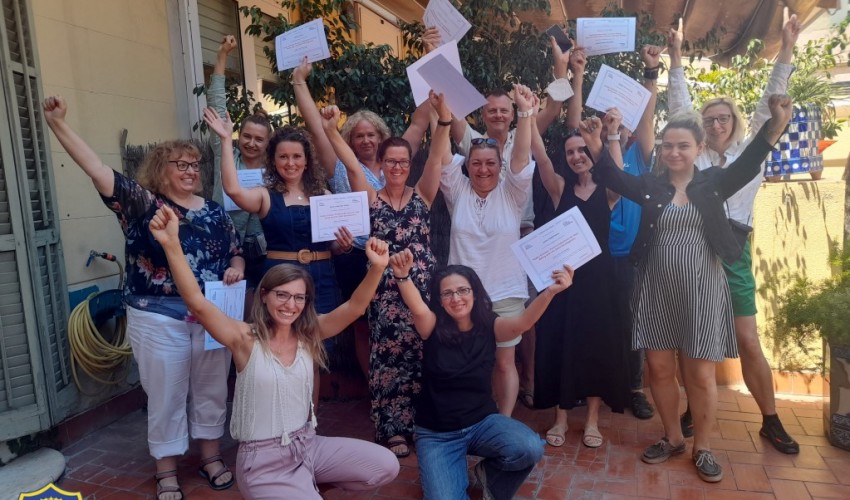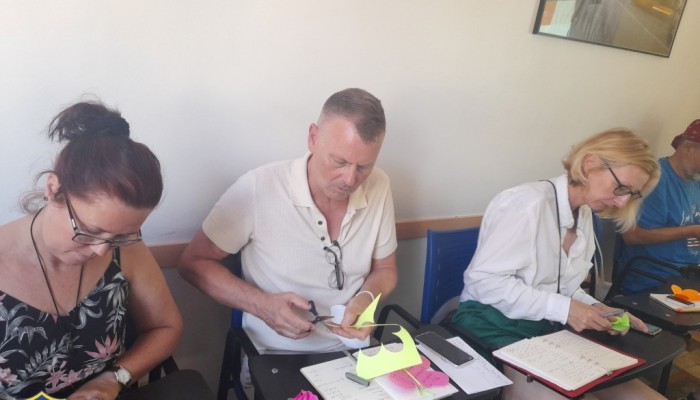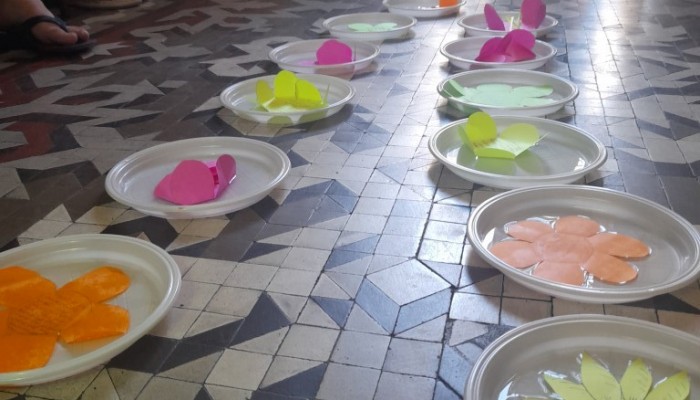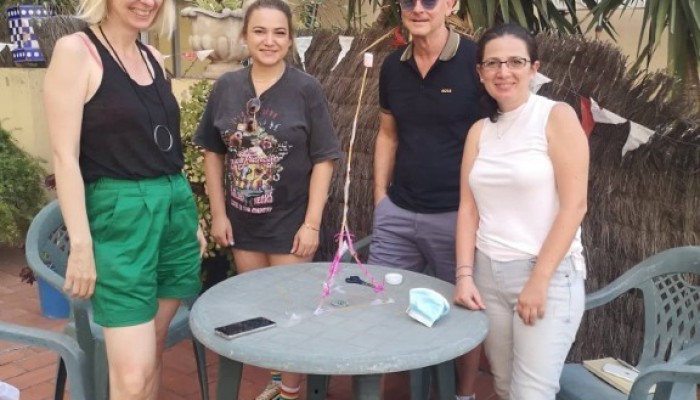Participation in the Erasmus+ course 'Happy Schools: Positive Education for Well-being and Life-skills development.'
Between the 4th and 9th of July, Ms Leoni Hadjithoma (Head of Year 3) attended the Erasmus+ course 'Happy Schools: Positive Education for Well-being and life-skills development in Barcelona, Spain teachers from Germany, Croatia, Hungary, Romania, Poland, and Turkey.
The course was led by Maria Del Monte (educational psychologist and music therapist) and was funded by the Erasmus+ Accreditation Program.
Positive education aims to promote well-being and happiness in a holistic perspective in the classroom and beyond, providing young people with knowledge and life skills to flourish in their present and future life. This contemporary educational approach is based on Positive Psychology, the scientific study of human flourishing and optimal functioning. It focuses on strengths and virtues that enable individuals, communities, and organizations to succeed.
Day 1:
Participants were introduced to the course's learning objectives, participated in music ice-breaker activities and presented their schools. The needs and goals of each participant were identified according to their context
Day 2:
The day started with visualisation to focus the mind. Following that, the trainer presented Positive Psychology's foundations, history, and pioneers (Christopher Peterson, Martin Seligman, Mihály Csíkszentmihályi) and their theories and methods on pleasant life, good life and flow, flourishing, meaningful life, strengths, and virtues. She talked about the benefits of a happy life on health and mental health. She introduced the skills that we can train to achieve happiness, i.e., build positive emotions and relationships, pursue engagement and meaning in life activities, enhance personal resilience, increase awareness through mindfulness practice, and engage in a healthy lifestyle. We can teach our students these skills using the PERMA model of Well-being (Seligman, 2011), which focuses on positive emotions, engagement, relationships, meaning and accomplishment, and the 24 Character Strengths and Virtues (Seligman and Peterson, 2004).
Case studies of schools in Germany, Australia and India that have implemented a positive education program with positive outcomes on students' mental health and academic achievement were presented.
Day 3:
Participants were introduced to mindfulness as an opportunity to train their minds, focus their attention on the present, relax, achieve goals, reach a certain self-awareness level and participate in mindfulness activities. They were introduced to several mindfulness activities that may be used at schools, such as sitting, walking, body exploration, food, and creative mindfulness.
The participants then focused on the first element of the PERMA model while exploring the world of positive emotions and being introduced to strategies that can be implemented in a school context to develop them, as well as the second element of the PERMA model, i.e., engagement while someone is in a Flow state (Csíkszentmihályi, 2004).
Day 4:
Started with a compassion mindfulness activity and then followed a discussion about the third element of the PERMA model, i.e., positive relationships and how we can foster them at school using the Active Constructive Responding (ACR) Model (Lambert et al., 2013), High-Quality Interactions (HQIs) Theory and the importance of sharing Gratitude to others.
The second half of the day focused on the fourth element of the PERMA model, meaning and the fundamental values and attitudes that guide our life and how to foster them at school.
Day 5:
Started with a discussion on the fifth element of the PERMA model: achievement and the importance of setting SMART goals (specific, measurable, achievable, realistic/relevant, time), having a Growth Mindset, positive praise and celebration of achievements.
Activities related to the 24 Character Strengths Model (Christopher&Seligman,2004) are organised into six virtues, i.e., wisdom, humanity, justice, temperance/moderation, transcendence, and resilience.
Day 6:
This day was dedicated to cultural activities in the centre of Barcelona with a local as a tour guide
How will all this be implemented next year at our school? Stay tuned for updates!




